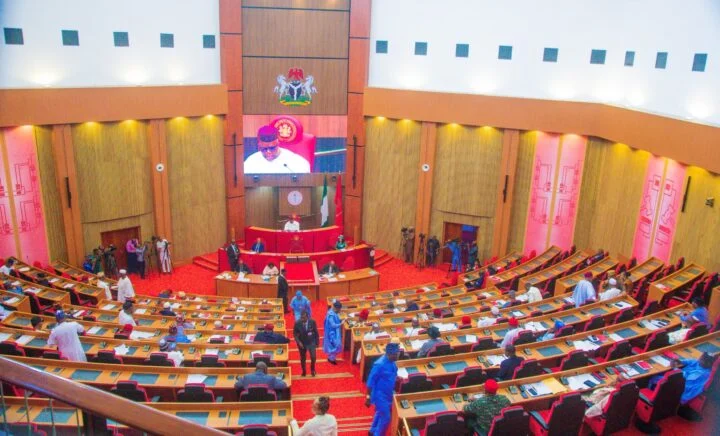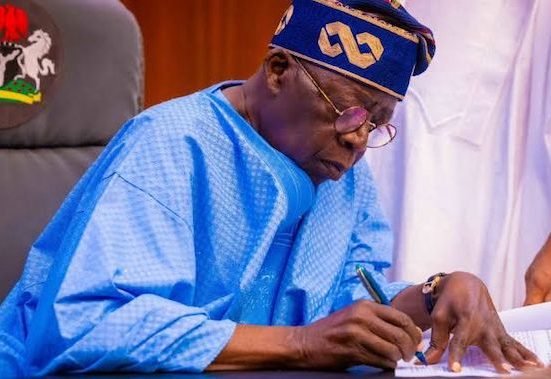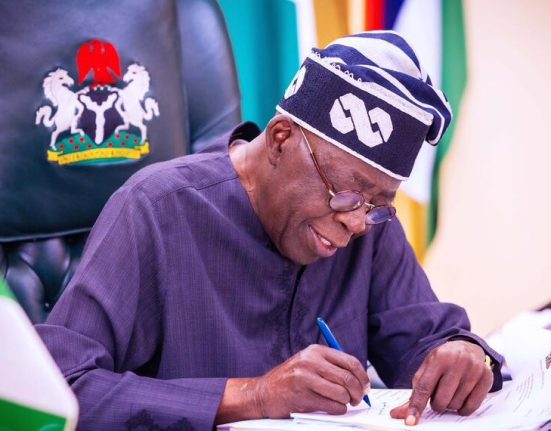A fresh wave of criticism has erupted following the decision by the National Assembly to once again extend the implementation of the capital component of the 2024 national budget — this time until December 31, 2025. The move, approved by both the Senate and House of Representatives during plenary on Tuesday, has stirred widespread concern over the country’s fiscal discipline, governance efficiency, and the overall credibility of the budgeting process under President Bola Ahmed Tinubu’s administration.
The Senate, presided over by Deputy Senate President Barau Jibrin, gave swift passage to the amendment of the 2024 Appropriation Act after it went through first, second, and third readings within the same session. Leading the debate was Senator Olamilekan Adeola, Chairman of the Senate Committee on Appropriation, who argued that the extension was necessary to allow the Federal Government to complete critical infrastructure and development projects already captured in the 2024 fiscal plan.
Adeola noted that limited resources have hampered the Federal Government’s ability to implement all capital projects within the originally approved timeframe. He warned that failure to extend the budget’s lifespan would lead to widespread abandonment of projects across the country — a development that would further damage public trust in government spending.
Similarly, the House of Representatives also considered and passed a corresponding bill sponsored by Deputy Majority Leader Ibrahim Halims, seeking to shift the capital implementation deadline from June 30, 2025, to the end of December that same year. Speaker Tajudeen Abbas echoed the rationale presented by the Senate, admitting that the capital segment of the 2024 budget had seen poor execution to date.
This marks the second time the 2024 capital budget has been extended. Initially due to end in December 2024, the timeline was first moved to mid-2025 following a formal request by President Tinubu to allow more time for the execution of key projects. That extension was justified on the grounds of optimizing capital spending and avoiding the wastage associated with hasty project closures. Now, the government’s inability to meet even the adjusted timeline has drawn the ire of economic stakeholders.
Several economists and policy experts have described the continued extensions as a disturbing pattern that undermines Nigeria’s budget credibility and macroeconomic stability. Ayo Teriba, a respected economist and Chief Executive Officer of Economic Associates, criticised the repeated adjustments as a sign of weak execution capacity. He stressed that if funding is unavailable, it would be more transparent to admit it rather than artificially stretch a 12-month budget into a 24-month cycle.
Teriba pointed to similar delays in previous budgets, including those carried over from the Buhari administration, noting that the government had established a worrying precedent of postponements without providing clarity on execution levels or project outcomes.
Paul Alaje, Chief Economist at SPM Professionals, warned that running overlapping budget cycles — as is now the case with the 2024 and 2025 budgets — could distort monetary planning and trigger inflationary pressures. According to him, the simultaneous implementation of two capital budgets increases the money supply, which in turn could cause consumer prices to spike. However, Alaje noted that the full inflationary impact would depend on whether the delayed projects are actually new executions or delayed payments for work already done.
Professor Akpan Ekpo, an economist and former Vice Chancellor of the University of Uyo, described the dual-budget situation as an “embarrassment” that reflects poor forecasting and unrealistic revenue expectations. He emphasized that such budget overlaps create uncertainty for investors, stall job creation, and deepen Nigeria’s ongoing economic stagnation — a condition where inflation and low growth coexist, often referred to as stagflation.
Adding to the criticism, Dr Muda Yusuf, Chief Executive Officer of the Centre for the Promotion of Private Enterprise, highlighted long-standing concerns around poor capital budget performance. He attributed the issue partly to overambitious revenue projections, especially from oil. With Nigeria still struggling to meet crude production targets and grappling with pre-sold barrels, revenue shortfalls have become the norm — undermining the feasibility of funding capital projects as planned.
Meanwhile, a senior official at a federal ministry, who spoke on Tuesday ocondition of anonymity, revealed that most ministries are yet to begin implementing the 2025 budget. Despite the fiscal calendar now entering its seventh month, operations and payments are still being carried out under the 2024 budget, with delays in contractor payments and staff allowances compounding frustration among civil servants.
According to the official, “We’ve been running on the 2024 budget since January. Even duty travel allowances for staff have not been paid, and we’re now hearing that implementation of the 2025 budget may not begin until August. It’s becoming a mess.”
The Office of the Accountant General of the Federation, through its spokesperson Mr. Bawa Mokwa, confirmed the recent release of capital funds to ministries under the 2024 budget. He explained that the commencement of the 2025 capital implementation will begin only after full closure of the previous year’s capital allocation. However, he declined to comment on the implications of the latest extension.
As Nigeria finds itself in the unusual position of operating two budget cycles concurrently, concerns continue to mount over the Tinubu administration’s ability to adhere to basic fiscal discipline, execute projects transparently, and ensure meaningful economic progress in a period already plagued by rising inflation, currency volatility, and underwhelming revenue performance.
With citizens bearing the brunt of stalled infrastructure, unpaid entitlements, and rising living costs, many are calling for a total overhaul of the country’s budget planning and implementation framework to restore credibility and re-establish accountability.







